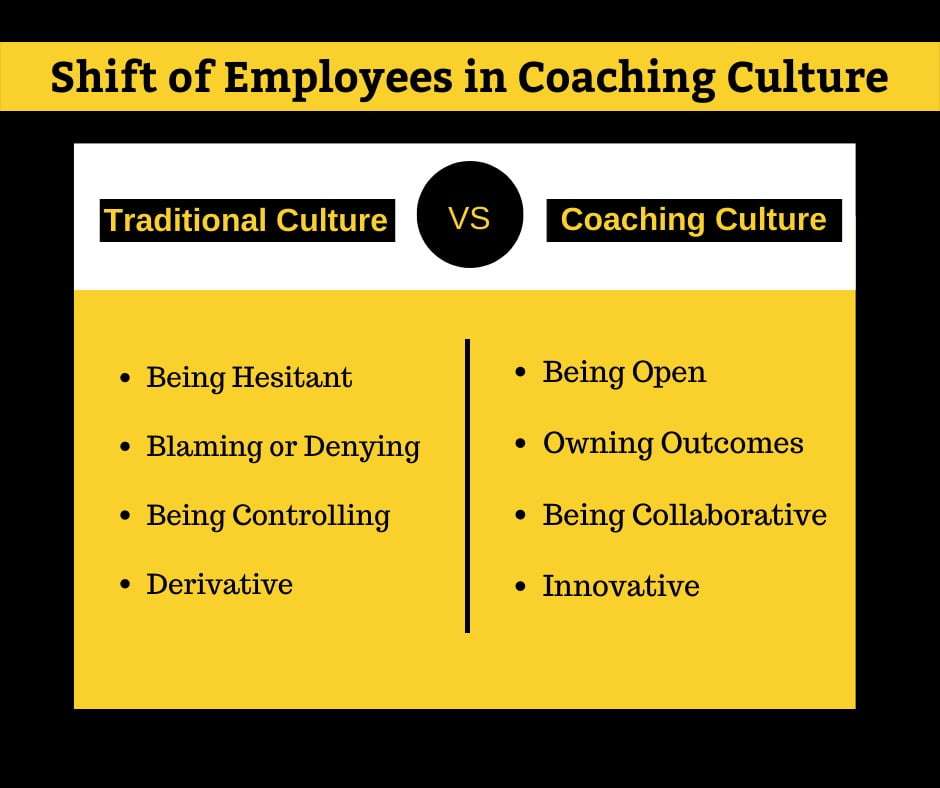Coaching and Mentoring: What’s the Difference
Coaching and mentoring are people-enabling professions. They have a lot of overlap in the skill set required, people’s expectations & outcomes delivered. For example, both coaching & mentoring
➢ Calls for a high level of trust & vulnerability
➢ Exposes to newer ways of thinking & being
➢ Progresses towards desired goals
➢ Have an expanding effect on people, both personally & professionally.
However, coaching and mentoring are also very different from each other. Let’s try to understand it with a case study.
Say Raj is transitioning into a new senior management role. This new position calls for an upgraded version of him to ably handle the new responsibilities.
Scenario 1 – Raj realizes he needs to improve his Conflict management skills. He reaches out to his mentor Kishore who has been there & done that, in his past roles. Once the contracting is done & trust is established, they get together to work on this specific goal. Kishore brings in his role expertise as well as life expertise to richly expand Raj’s way of dealing with conflicts, by sharing and advising him on his time-tested conflict management framework.
Scenario 2 – Raj observes that he feels challenged in managing conflicts, which he otherwise used to be good at. He partners with a coach, who not necessarily is from the same professional background – to address this. The Coach takes a holistic approach to explore how things have shifted for Raj due to the recent transition. The Coach helps Raj identify his blind spots, in this case – Raj currently going through a learning curve impacting his confidence & adding stress to deliver to new expectations. How all of this feeds into impatience towards people, making him inefficiently manage conflicts They Co-create actions with sustainable resources identified in the here & now, to help Raj manage conflict progressively better.
The key difference between Coaching & mentoring from the above case study are:

A mentor often has hands-on experience or more experience than the client & the same experience background adds value, whereas a Coach can have less or more experience than the client & can be from a different experience background

Mentoring is Directive, whereas Coaching is non-Directive. A mentor helps the client to find solutions through assignments, advice, challenges, sharing personal experiences, hand-holding, etc, whereas A coach Co-Creates solutions along with the client.

Mentoring often happens 1:1, while Coaching can happen 1:1 as well an in groups & teams

Often mentors are identified within the organization while Coaches could be both internally or externally sourced.

Mentoring experience is often associated with the professional aspect of life, while Coaching is associated with a different diverse niche like – life, relationship, career, executive, and leadership spaces.
What Skills Are Needed to Be An Effective Coach or Mentor?
A coach & a mentor is a person who sees more talent & ability in you than you see in yourself. They don’t solve problems for you but enable you to rise up & solve them for yourself. There is a range of skills that need to be acquired before you can become an effective Coach or Mentor. While technical expertise & domain knowledge can greatly add value to mentoring, here are a few core skills that are imperative for both coaching & mentoring:
Active Listening
Unconditional Positive Regard
Powerful Questioning
Partnering
Sharing Observations/Feedback
Genuine interest in enabling people to become a better version of themselves
Skills and Qualities of a Manager: Coaching and Mentoring Are Especially Key for First-Time Managers
Every new situation in life calls for a different upgraded version of us.
When an employee transitions from an individual contributor to a manager, they are not just accountable for his/her performance alone, but for the performance of their entire team. They are in a unique first-time situation to manage not just their deliverables, but also take accountability for the whole team’s performance. This first-time manager is expected to experience a lot of change in the way he has functioned in the past & henceforth. While being on the learning curve in the new role, they are to also manage the team dynamics & their internal responses to new situations arising out of those dynamics. Coaching & mentoring can greatly help in creating a safe space for first-time managers to share their vulnerabilities, seek advice & expertise to handle them (in the case of mentoring), and work on self-leadership skills like – overcoming self-doubts, effective time management, conflict management, better communication, etc & eventually be better equipped to deal the demands of the new role. Coaching & mentoring leaves an impression that is beyond achieving the goals alone. Anyone who experiences coaching or mentoring in their lives strives to hold that place for others. Thus, new managers, who are exposed to coaching/mentoring during their role transition, extend support to their team members from a place of – “I have benefitted from coaching/mentoring & now I want you to experience this”.
Keys to Coaching and Mentoring Employees in the Workplace
In the new hybrid ways of workplace post-pandemic, the ability for leaders to coach & mentor becomes critical for building & maintaining a positive work environment. A leader skilled at coaching and/or mentoring can:
➢ Earn the employee’s trust: due to their non-judgemental frame of reference & the attitude of unconditional positive regard.
➢ Build authentic connections: due to their genuine interest in enabling people.
➢ Recognize individuals for their strengths & possibilities beyond just the performance evaluations: Due to their value of looking at the person as a whole & not in parts & trusting in their human potential.
➢ Inspire people to pursue their goals relentlessly: Leaders skilled at coaching / mentoring walk their talk. They are humble beings, who achieve their goals in a sustainable & consistent fashion, thus inspiring people to believe in themselves & follow their own goals relentlessly.
How to Create an Organizational Culture of Coaching
Organizational culture is nothing but a collection of values, expectations & practices that define & guide the actions of all the team members. When leaders adopt a coaching leadership style, they create nurturing places, where employees don’t feel the need to hide behind any kind of façades. Employees in a Coaching Culture shift from:
➢ being hesitant to being open to ask for help.
➢ Blaming or denying to admit fault to owning outcomes
➢ Being controlling to collaborating
➢ Derivative to innovative Since Coaching/Mentoring skills are not just skills, but a way of being, the leaders embodying these skills inspire people around them to imbibe these as leadership qualities.
To create such an Organizational Culture, unlike the traditional belief of reserving coaching & mentoring only to senior leaders, making it accessible at all levels of leadership becomes imperative. The compounding effects of Coaching & Mentoring, when experienced at both individual & team levels, help create a viable culture of coaching throughout the organization.

Measuring the Success of Coaching & Mentoring?
Both Coaching & Mentoring are customized interventions for a specific client working towards a specific goal. Thus, the measure of success of Coaching & Mentoring cannot be approached with a one-size-fits-all mindset.
With the success of Coaching & Mentoring Initiatives traditionally being difficult to measure due to their unique & qualitative nature, they often get deprioritized in favour of more data-driven programs.
However, it need not be that way.
Its recommended, before any individual or organization sets out to contract for a Coaching or Mentoring program, to have their Objectives & KPIs well defined, so that it is easy to look at & check progress against what success looks like for them & to measure that success during & post-intervention – For eg: Employee engagement before & after Coaching & Mentoring, Employee Retention rate pre & post Coaching & Mentoring.
Apart from the tangible business outcomes, Coaching & mentoring success can also be measured through the myriads of intangible benefits that an organization stands to gain such as – Strengthening the company culture, Enhanced employee growth & engagement, fostering diversity & inclusion, retaining high potential talent, Change adaptability, Smooth succession planning, greater productivity & overall wellbeing etc.
How Regal Unlimited Can Help you with Coaching and Mentoring?
The hallmark of a great leader is not in creating followers but to create more leaders. Leaders do end up creating more leaders, but often they create their own replicas, which is limiting & not sustainable for an ever-changing work landscape.
With a Leader as a Coach/Leader as a Mentor approach, A leader not just demonstrates but also inspires people to become more of who they are in terms of their human potential.
Regal Unlimited’s Leader as a Coach is one such specially curated programme promising to build coaching & mentoring Skills for your leadership teams.
“The greatest good you can do is not just share your riches but to reveal to him his own” – Benjamin Disraeli.
Do you aspire for your leaders to get coached and develop the coaching style of leadership?
Do you want to instate a Coaching Culture in your organization and look for your leaders to grasp the nuances of Coaching and Mentoring skills? Then write to us: info@regalunlimited.com for more details or visit the Leader as a Coach program.



